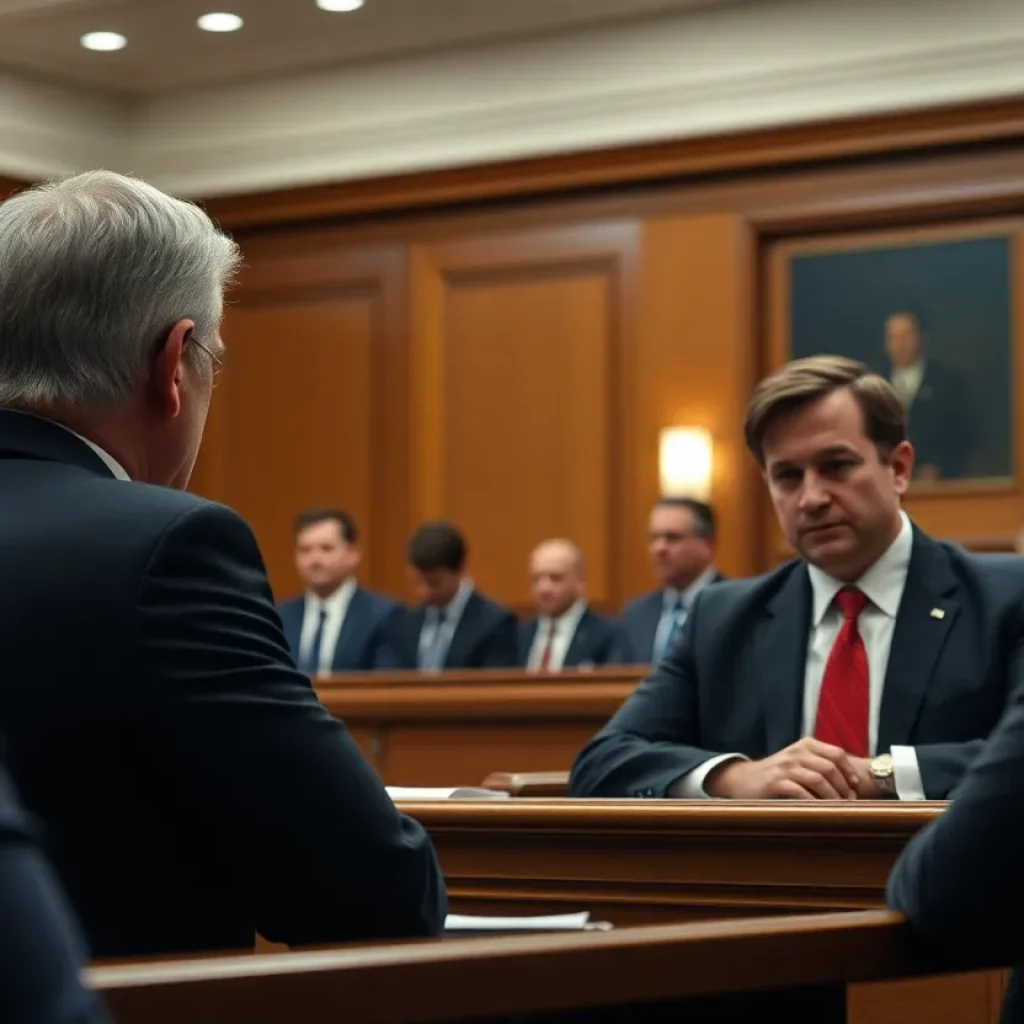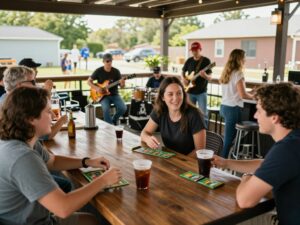News Summary
Amid calls for expedited death penalty appeals, Louisiana Attorney General Liz Murrill urges the Supreme Court to establish standards for condemned inmates. Critics accuse her of undermining justice, while families seek closure. The debate intensifies with the resumption of executions and concerns about methods, including nitrogen gas. The legal community watches closely as the fate of five inmates hangs in the balance.
Controversy Unfolds in Louisiana Over Speeding Up Death Penalty Appeals
In a contentious move aimed at expediting the appeals process for condemned inmates, Louisiana Attorney General Liz Murrill has called on the Louisiana Supreme Court to set definitive standards for post-conviction appeals of five death row inmates. Murrill argues that the families of victims deserve timely justice, deeming the current delays—often stretched over decades—as unacceptable and lacking validity.
Justice for Victims’ Families?
The legal action brought forward includes writs filed with the state’s highest court concerning the appeals of inmates Antoinette Frank, Robert Miller, Larry Roy, David Henry Bowie, and Marcus Reed. Murrill’s assertion centers on the belief that the judicial process must not drag on indefinitely. Her push for expedited proceedings has polarized opinions within the legal community.
Contrasting Perspectives
Critics of Murrill’s initiative, such as attorney Cecelia Koppel, who represents death row inmates, have dismissed the filings as mere “meritless grandstanding.” Accusations have surfaced that the attorney general’s motives may serve to confuse and stifle the judicial process rather than bring about fair justice.
The Inmates at the Center of Controversy
The five individuals targeted by this expedited appeals initiative each present unique and troubling cases:
- Antoinette Frank: The only woman on Louisiana’s death row, she was convicted for the brutal 1995 murders of her police partner and restaurant owners.
- Robert Miller: Convicted in 1997 for the robbery, rape, and murder of his 67-year-old landlord in Baton Rouge.
- Larry Roy: Sentenced for a double murder in 1993, his execution warrant was retracted due to unexhausted legal appeals.
- David Henry Bowie: Found guilty of the strangulation of John Smith following a gambling dispute.
- Marcus Reed: Sentenced for the murder of three brothers over an allegedly stolen video game console.
Currently, there are 54 offenders on death row in Louisiana, with plans for executions of at least four inmates this year, rekindling debates about the state’s approach to capital punishment.
The Return of Nitrogen Gas Executions
Since Louisiana resumed executions after a prolonged 15-year hiatus, the controversial method of nitrogen gas has entered into the fray of capital punishment discussions. This shift came after the execution of Jesse Hoffman, who was sentenced to death for the 1996 kidnapping, rape, and murder of Mary “Molly” Elliott. His case has stirred unease, particularly around the humane implications of using nitrogen for executions, with concerns echoing about its potential cruelty.
Legal Controversies Surrounding Execution Methods
A federal judge has intervened, halting the planned nitrogen gas execution for March 2025, raising constitutional questions about the method. Judge Shelly Dick pointed out that the legality of nitrogen hypoxia should be thoroughly examined at trial, especially regarding its implications of cruelty. Hoffman’s attorneys voiced concerns that this method of execution violates his religious beliefs as a practicing Buddhist.
Critics have characterized nitrogen gas executions as potentially torturous and in direct conflict with human rights standards. Eyewitness reports from previous executions in Alabama involving nitrogen hypoxia have recorded disturbing scenes of distress, prompting significant public concern.
The Bigger Picture
As the debate surrounding the death penalty and its methods intensifies, the implications of recent actions by the Louisiana Attorney General and the ongoing legal challenges create a compelling landscape for future discussions about capital punishment. The state finds itself at a crossroads, grappling with the morality and legality of its execution practices.
With executions once again on the horizon, unsettled questions linger about the future of Louisiana’s death penalty and its judicial processes. The legal community watches closely as developments from the Louisiana Supreme Court unfold, potentially shaping the fate of many still waiting for justice.
Deeper Dive: News & Info About This Topic
HERE Resources
Richard Gerald Jordan Executed After Decades on Death Row
Execution by Firing Squad Sparks Controversy in South Carolina
Firing Squad Execution in South Carolina Sparks Controversy
Tragic End in South Carolina: Mikal Mahdi Executed by Firing Squad
Mikal Mahdi Executed in South Carolina’s Firing Squad
South Carolina Executes Inmate Mikal Mahdi by Firing Squad
Alina Habba Sworn in as Interim U.S. Attorney General Lawyer
South Carolina Executes Mikal Mahdi: The Debate Over Capital Punishment
South Carolina Set to Execute Inmate by Firing Squad
Lawyer Detained at Airport Over Attorney-Client Privilege Concerns
Additional Resources
- Louisiana Illuminator: Louisiana Begins Execution Process Again After 15 Years
- Wikipedia: Death Penalty in Louisiana
- CBS News: Louisiana Death Row Execution Using Nitrogen Gas Halted
- Encyclopedia Britannica: Death Penalty
- Associated Press: News on Louisiana Executions
- Google Search: Louisiana Death Penalty Executions
Author: STAFF HERE CHARLESTON
The CHARLESTON STAFF WRITER represents the experienced team at HEREcharleston.com, your go-to source for actionable local news and information in Charleston, Charleston County, and beyond. Specializing in "news you can use," we cover essential topics like product reviews for personal and business needs, local business directories, politics, real estate trends, neighborhood insights, and state news affecting the area—with deep expertise drawn from years of dedicated reporting and strong community input, including local press releases and business updates. We deliver top reporting on high-value events such as the Spoleto Festival USA, Charleston Wine + Food Festival, and the MOJA Festival. Our coverage extends to key organizations like the Charleston Metro Chamber of Commerce and the Charleston Museum, plus leading businesses in tourism and maritime industries that power the local economy such as South Carolina Ports Authority and the Charleston Visitor Center. As part of the broader HERE network, including HEREaiken.com, HEREbeaufort.com, HEREchapin.com, HEREcharleston.com, HEREclinton.com, HEREcolumbia.com, HEREgeorgetown.com, HEREgreenwood.com, HEREgreenville.com, HEREhiltonhead.com, HEREirmo.com, HEREmyrtlebeach.com, HEREnewberry.com, HERErockhill.com, HEREspartanburg.com, HEREaustin.com, HEREcollegestation.com, HEREdallas.com, HEREhouston.com, and HEREsanantonio.com, we provide comprehensive, credible insights into South Carolina's dynamic landscape.










